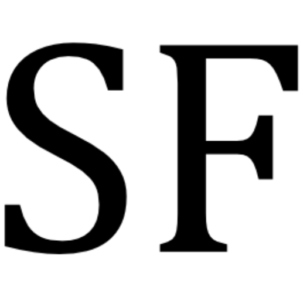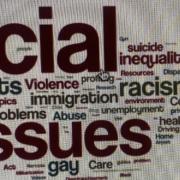Carney’s (and Canada’s) Next Task….
To those of you who agree with me that we dodged a bullet in our recent federal election, we now must make sure that we don’t follow the pattern south of the border and find that the Carney years are just a temporary reprieve. So, while recognition and thanks are given to the many who worked hard for this election result, the hard work is just beginning.
Our new PM has his work cut out for him on many fronts. The Trump factor may have won the election for the Liberals, and will still be, at least in the short-term depending on how his Orangeness behaves, one of the key factors the PM needs to concern himself with. However as huge as that challenge is, there is much more that requires immediate attention.
We face significant regional divisions and right-wing populist leaders all too keen to fan the flames of discontent (even if their own policies as in the US would only worsen the situation) and who won’t hesitate to put their own political interests ahead of that of the country. Our need to address the existential climate crisis is likely going to conflict with our short-term requirement to address the shredding of our long-term relationship with the US by the Orange One. And perhaps the most immediate challenges that absolutely must be addressed if we are not to head down the orange brick road are socioeconomic – including the housing crisis and affordability issues that have caused many to succumb to the false promises of far-right populists.
In my view one of the key reasons the Biden years were only a short-term reprieve was that despite much great work, Democrats continued to adhere to the prescriptions of neoliberalism[1]. They were thus unable to connect with sufficient voters and demonstrate that they ‘got it’ and could be trusted to respond to their needs. Instead, the levels of social decay following decades of neoliberal rule (by both Democrats and Republicans) mandates a paradigmatic shift in the way of doing business away from this ideology (or idiotology as I call it). Whether this is possible or not I do not know. Certainly, Biden had to contend with an almost impossible governing environment and inherited a mess courtesy of the Orange King’s first term. The failure (or inability) to truly address the source of unhappiness of the Nation however, meant that the Biden years were just a reprieve and paved the way for the Orange Majesty’s second term
We may have a few more safeguards than the US, such as the lesser influence of big / dark money in politics and gerrymandering to mention just two. However, we deceive ourselves if we think we will have a different fate if Carney and the Liberals do not substantively and quickly address the needs of the electorate – and indeed the Country.
Fundamentally, this means distancing themselves from neoliberalism. We in Canada have also suffered the results of years of adherence to this idiotology. We have many of the same housing / affordability issues seen south of the border. While our level of income inequality is not as extreme as in the US, it is increasing which is a harbinger of more difficult times to come. We too, have handed over much of our essential infrastructure to the private sector and have an economy significantly dominated by monopolies and oligopolies.
The challenge with turning the page on neoliberalism, or even finding a better, more sustainable version (if that is even possible), is that both the Liberals and the Conservatives – and much of the population – have drunk the neoliberal Kool-Aid. Likewise, the public service, while thankfully still non-partisan (another advantage we have over the US), has also come to accept this approach as the only way to operate. As Alex Himelfarb said in his book Breaking Free of Neoliberalism: Canada’s Challenge, neoliberalism has become the accepted dogma, or, as he called it, the political order which determines not only what is understood and accepted to be true but what is allowed to be discussed and considered. No evidence is necessary even for those that claim to be evidence informed. Thus, the avowed evidence based public servants that the government will rely upon for advice and implementation are themselves challenged to think outside neoliberal prescriptions.
Perhaps even more problematic, Canadians have also come to accept the neoliberal approach (and its foundational assumptions) as the ‘way things are done’. Thus, the ready acceptance of privatisation because governments are assumed to be inefficient and incapable of managing anything. Or the lauding of the private sector and calls for deregulation and tax reduction so that business can be free to create value for the Canadian Public. Such unquestioning acceptance renders Canadians less receptive to different ways of thinking about how we govern ourselves.
Perhaps you feel that neoliberalism is based upon good research and analysis and thus not to be easily discarded. Yes, some of its foundational thinkers such as Milton Friedman and Frederick Hayek were Nobel laureates. And yet there has never been any research that confirms their hypotheses. To the contrary, in the real-world laboratory, if we trace the results of the enthusiastic embrace of neoliberalism, we see just how empty its promises are. Indeed, the main consequences have been the fragilization of societies globally, a significant and unsustainable transfer of wealth to the top 10% (or perhaps 1%) of the population and the creation of social and political decay.
Carney seems to understand the need for a different approach, saying that a far greater challenge than Trump is to foster unity and a sense of the common good. I am encouraged from reading his book, Value(s): Building a Sustainable World Through Values Driven Change, and from hearing him speak using some of the concepts from what I consider to be research-informed and evolved economists (in contrast to the usual neoliberal pundits). Transforming that intent into policies and laws that will not only be effective but be seen to work by the general populace in time for the next election will however be a big lift.
In a belated nod to the 4th of May, I think it is only fair to say: May the force be with him!
I should probably say May the force be with us, as all of us – public servants, politicians, citizens, and all who value our country and its sovereignty – have a role to play. Despite popular belief, politics is not an inherently unworthy or corrupt occupation. Politics and government are instead an inherent part of what allows us to co-exist, to negotiate how we will go on together. As noted totalitarian scholar Timothy Snyder says in his book, On Freedom, freedom is not ‘freedom from’ the exercise of government power as the far-right would allege but the freedom to thrive, to take risks for a future we choose working together.
While Louis XIV was known to say l’etat c’est moi, he was wrong. It is l’etat, c’est nous. We are all responsible to ourselves and to future generations in both big and small ways for the future of our country. Mark Carney nailed it in his acceptance speech at the Liberal Leadership convention:
“We will have to do extraordinary things together. We will have to build things we never imagined, at a pace we never thought possible. And above all, we must put people before money. We must unite, to build the strongest, fairest and freest country in the world.”
And may we, the citizens, bring our best game to support this dearly needed direction. Not to be overly dramatic but our country may depend on it.
[1] [1] Neoliberalism refers to the approach to governing starting in the 1970’s and 1980’s and promoted by Thatcher and Reagan, which sought to reduce government interventions in economic and social activities through privatization, lowering of taxes on the wealthy and corporations, and austerity and the deregulation of labour and financial markets as well as of commerce and investments. The promise was trickle-down economics, e.g., that government getting out of the way would unleash the enormous potential of capitalism, the benefits of which would trickle down and create an unprecedented era of social wellbeing.









